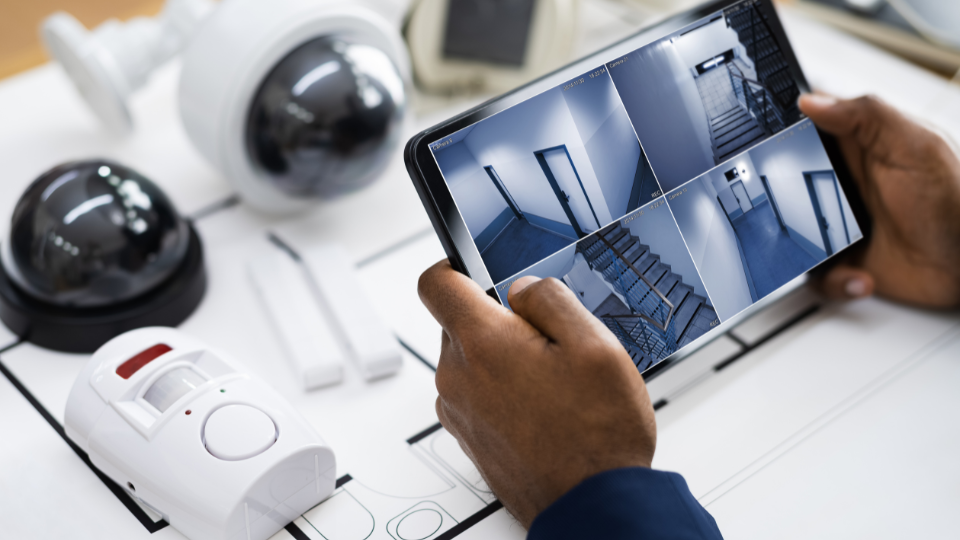
Attackers are always on the lookout for easy targets and a small business without a security plan is their perfect opportunity. A “Soft Target” is defined as a person, thing, or location that appears vulnerable, easily accessible, and open to attack. Our mission at Safe Haven is to significantly reduce this Soft Target perception, transforming small to medium businesses into “Hard Targets” that are prepared, protected, and secure. Below are fundamental principles of physical security, applicable across industries from manufacturing to mom-and-pop shops. These should be integral to your security strategies.
The Threats Facing Today’s SMB’s
Business owners in the Las Vegas Arts District have been experiencing increasing vandalism over the past few months, with one stating they’re under attack daily. Rocks have been thrown into glass windows and a register has been stolen, which cost one SMB thousands of dollars to recoup and repair their family-owned business. As far as in other states this week, a 62 year old man is recovering after being beaten while working inside a deli, and in Athens, GA, an employee of a homeless shelter is on the mend after being attacked with a machete. It doesn’t matter where or when. What matters is that you are prepared.
The 5 D’s of Physical Security
Here are some ways we might break down the layers of protection you need once your Physical Security Risk Assessment has been completed.
Often cited as the first line of defense against an attack, the primary goal of deterrence is to make attackers think twice before attempting any malicious activity. Visible security measures such as surveillance cameras, security personnel, alarm systems, and clear signage indicating the presence of these measures can deter would-be intruders. This also means keeping the exterior of your building well-lit at night and maintaining a clean and organized appearance. Attackers are less likely to target a business that appears secure and well-maintained.
Just like a smoke detector warns you of a fire before it spreads, advanced surveillance systems and vigilant security personnel (even employees or patrons) can identify suspicious activity before it escalates. This might involve an alarm system that alerts the authorities in the event of a break-in, or something as simple as motion sensors that trigger lights near your premises. Regularly checking your surveillance footage and conducting audits of your inventory can also help detect any suspicious activity early on.
Think of denial as your front door’s lock. Only you have the key. With measures like anti-climb fencing, crash-rated barriers, and biometric access controls, you can make it incredibly difficult for unauthorized individuals to gain entry. This not only protects your valuable assets but also ensures that your employees and customers feel safe within your premises.
The goal with delay is to slow down intruders, and the longer it takes for an attacker to gain access to your business, the more likely they are to give up and move on. Installing strong locks, reinforced doors and windows, and security gates can all delay a potential break-in. You should also consider keeping valuable items locked in secure safes or cabinets. Especially true for open-plan offices, this buys precious time for your security team or law enforcement to respond, lessening your potential damage and loss.
In the worst-case scenario of a physical attack or armed robbery, it’s important to have a plan in place to defend yourself and your employees. If not already, an Emergency Action Plan is a recommendation for each and every business. Basics could include training on how to respond during a crisis, having emergency exits clearly marked, and keeping first aid kits readily available for your team. You may also want to consider investing in self-defense tools if you are self-employed or a one-person team, or hiring security personnel. When all other measures have been breached, having a robust defense strategy with the right tools and a clear plan can neutralize threats and protect your business.
Assessing Your Small Business Risk
This line of work will often use a “heat map” to communicate your organization’s level of risk. A heat map will display risk events in terms of criticality (how severe the outcome or situation) and likelihood (how likely an event is to occur). An event that has a lower likelihood of happening with low criticality may be something like a loading dock door failure. Ranging up in criticality and in likelihood might be an event like a winter storm impacting facility access or theft of company information. Neglecting to assess your risk in any way can turn out to be costly.
This is why we refer to the 5 D’s of Physical Security when keeping your security policies in mind. Investing in defensive measures also doesn’t mean that you are expecting the worst, just that you are prepared for it. A secure small business is a successful small business.
Copyright 2023 SAFE HAVEN RISK MANAGEMENT LLC . All Rights Reserved. | Website Design + Development by JasonHunter Design